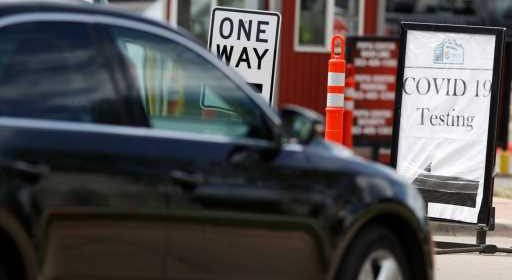Denver’s COVID-19 testing shifts to smaller community locations as Pepsi Center site prepares to close – The Denver Post

Denver’s COVID-19 testing strategy is pivoting for a third time, as the drive-thru site at the Pepsi Center closes next week and the city’s emphasis shifts to local and pop-up sites.
Like most of the United States, Colorado didn’t have enough testing supplies in March, and people who weren’t sick enough to go to a hospital were told to ride out their symptoms at home. After the Pepsi Center site opened in late May, officials encouraged anyone with symptoms to get tested — though some reported long waits for their results. Later, the drive-thru site expanded free testing to people without symptoms.
The next phase will focus on smaller-scale testing sites. The Pepsi Center cut its capacity in half Sept. 13, and all lanes will shut down after Sept. 30.
The goal is to slow the spread of the novel coronavirus in neighborhoods where infection rates are highest so that the city can begin reopening further, said Tony Diaz, an emergency management specialist with the Denver Department of Public Health and Environment.
The city also aims to make testing more accessible by meeting residents where they live, as not everyone owns a car, he said.
The site at the Pepsi Center was created as a “stop gap” while city officials organized and created a strategy for testing in the community, said Diaz, who oversees COVID-19 testing for Denver.
“We’re ready now to really start targeting the communities where we are seeing the outbreaks,” he said. “We want to make sure we are providing this more throughout the city.”
Diaz said new “mini-Pepsi Centers” will operate every day. There also are discussions underway to offer flu shots at the locations as influenza season is approaching. While Denver will lose some testing capacity, residents can get tests at the community sites, urgent care clinics or through primary care physicians, he said.
Denver’s announcement earlier this month of the looming closure of the Pepsi Center site directed “those who are able” to seek testing from their own doctor.
“We’re not trying to discourage anyone at this point to get tested,” he said.
Wendy Nading, a nurse manager in charge of community testing at Tri-County Health Department, said large testing sites in the metro area have been running at maybe half their capacity recently. Though the Pepsi Center saw long lines and limits imposed on tests per day in early July, Gov. Jared Polis more recently has noted that site has not been running at full capacity.
Additionally, not everyone is able to get to a central site, or even to register online, Nading said.
“The demand for that testing just hasn’t been there,” she said.
The large sites have the advantage of easy messaging, Nading said, but it could make sense to redeploy some of the staff working there to smaller sites around the community. Testing days at churches and other organizations that people trust in their neighborhoods have had good turnouts, she said.
“If they already have a community presence there, they’ve been very successful,” she said.
A schedule on the Denver city website showed a testing event every Saturday through the end of October, and some on weekdays. Locations included the Denver Indian Center, Abraham Lincoln High School, the Montbello school campus and social service providers.
Mobile sites can’t be the only solution, however, because people need to be able to get tested consistently, Nading said. Doctors’ offices and urgent care clinics have begun offering rapid testing, though it’s always a challenge to connect people without insurance to those locations, she said. COVID-19 testing itself is free, but patients could get a bill if a doctor runs any other tests, or for the cost of visiting an emergency room if that’s where the person got tested.
The state’s 211 map showed 141 locations providing COVID-19 testing in the Denver area. The sites had different criteria, though, with some testing only people with symptoms and others limiting their services to residents of certain counties.
Large sites offering free testing also are still available at the Aurora Sports Park and WaterWorld, for those able to drive there.
Olga Webber, chief operating officer for Clinica Tepeyac, said they may need to increase staffing to meet the need for testing after the Pepsi Center site shutters. The clinic initially offered testing only to people living in the Globeville and Elyria-Swansea neighborhoods, but now they have people coming from as far as Englewood and Golden.
They don’t survey patients about why they chose that site, but some are undocumented and afraid to go to a testing site that requires identification, she said.
“We want to be sure if somebody needs to be tested, they can come,” she said.
Source: Read Full Article